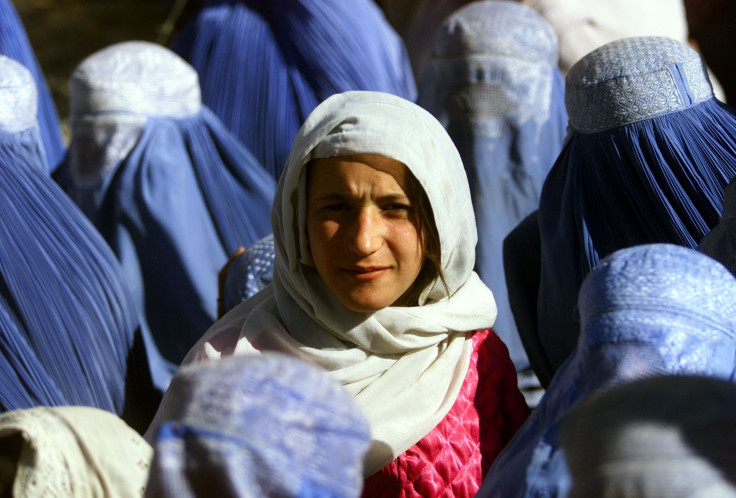Taliban For Women's Rights? Education, Employment In Afghanistan Touted By Militant Faction

A splinter group of the Taliban in Afghanistan has come out in support of women’s rights, suggesting that under Islamic Law, women and men have an equal right to be educated and gain employment. The group is symptomatic of a Taliban that has lost its identity after the death of its longtime supreme leader Mullah Mohammad Omar, who died in 2013. Many Talibs have joined the Islamic State group, also known as ISIS, while others had opted for a more moderate approach.
“We have realized this now, that under an Islamic system, all rights of human beings — both men and women — need to be implemented 100 percent,” Abdul Manan Niazi, one of the group’s leaders, told the BBC ’s Dari service, according to a Defense One report Monday, adding that the Taliban would be willing to commence peace talks with the country’s government if U.S. and foreign troops left.
The group made its case during a meeting of Taliban fighters in the western province of Farah, according to a Washington Post report. Former Taliban Gov. Mohammad Rasool was appointed as its overall leader, although it’s not yet clear how much support the group has. It would be surprising if the group managed to turn back more than 20 years of ideology that has been largely brutal toward women.
The new group, which is reportedly made up of influential members of the Taliban, has called for an end to infighting and said that it does not approve of suicide bombings and other types of attacks on Afghan military and civilian officials.
“We announce to all Afghans that it is enough and to put aside Afghan fratricide,” Niazi said in the BBC report, also mentioning that his group had held emergency meetings in the Farah region to spearhead the new moderate Taliban approach. “Let us find out who the source of the war in Afghanistan is, and where it comes from and how to prevent it.”
© Copyright IBTimes 2024. All rights reserved.












